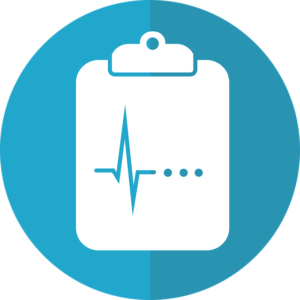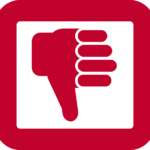Dear Annie, I am at a loss since I began taking blood thinners last year. I love all my herbs and essential oils, but have been cautioned by my pharmacist not to use them. Please tell me more about the interactions between herbs and blood thinning medications. Do you have a site or a reference to where I could find any info on this? Sadly, I’m a lifer for the thinners, but I sure miss the oils especially. Thank you!
Hi, it is true that most anti-coagulating drugs or blood-thinners have herbal, food and drug interactions. Drugs like Apixaban (Eliquis), rivaroxaban (Xarelto), and betrixaban (Bevyxxa) are classified as “direct factor Xa inhibitors.” To figure out the herbs, essential oils and foods that are safe (or unsafe), we first need to understand how these drugs work.
About Blood Thinning Medications
Factor Xa inhibitor anti-coagulants

Blood clotting factor Xa is a specific protease, or kind of enzyme, used in the bloods clotting system and is initiated at the initial phase of coagulation. Factor Xa inhibitors are a type of anticoagulant that work by selectively and reversibly blocking the ability of the blood to clot. These drugs are used to treat and prevent such conditions as deep vein thrombosis and acute pulmonary embolism, and to reduce the risk of stroke in people with non-valvular atrial fibrillation.
AFib or Atrial fibrillation is an irregular heart rhythm. It’s when your heart flutters. Non-valvular AFib is when the problem is not caused by a heart valve disorder. They don’t really have another clear definition. But, they think the irregular heart rhythm may be caused by other conditions, such as high blood pressure, an overactive thyroid gland or even stress.
Interactions and Blood Thinning Medications
Drugs like Eliquis, Xarelto and Bevyxxa have a ton of possible interactions based on a few factors.
- Blood thinning agents – many herbs, supplements, vitamins, minerals, over the counter medications and prescribed drugs can act to thin the blood. Further anti-coagulation could potentially cause bleeding events.
- Agents that act on one of the liver enzymes (CYP3A4). CYP3A4 acts to break down medications and poisons in the body. Stimulating the enzyme could decrease the effects of the drug. While inhibiting it could cause the drug to build up in the system, creating unwanted side effects.
I cannot stress enough that good research and working with a qualified professional is the best way to be safe. Always let your doctor in on what you’re doing. Work with a qualified herbalist or naturopathic doctor and always double check the actions of the herbs and medicines as they work together on paper. Then listen or pay attention to how it feels in your body. Listening to your intuition is the best way to know what is right for you. When in doubt, don’t.
No studies have directly examined how herbs and supplements that have blood-thinning actions interact with direct Xa inhibitors. However, it’s a good idea to avoid substances that have an anti-coagulant effect. Taking them with medications such as Eliquis (or other direct Xa inhibitors), could potentially increase the risk of bleeding.
Herbs and supplements to Avoid That have potential blood thinning actions

- Fish oil
- Ashwagandha (Withania somnifera)
- Chondroitin
- Curcumin
- Turmeric (Curcuma longa)
- Garlic (Allium sativum)
- Ginger (Zingiber officinale)
- Ginkgo biloba
- Melatonin
- Resveratrol
- Omega 3 fatty acids
- Vitamin E
Herbs are that are rich in salicylate /salicylic acid also tend thin the blood.
Avoid the following herbs when taking Blood Thinning Medications

- Peppermint (Mentha × piperita)
- Paprika (Capsicum annuum)
- Curry leaves and curry powder
- Thyme (Thymus vulgaris)
- Cinnamon (Cinnamomum verum)
- Dill (Anethum graveolens)
- Oregano (Oregano vulgare)
- Licorice (Glycyrrhiza glabra)
- Willow (Salix alba)
- Meadow sweet (Filipendula ulmaria)
- Cramp Bark (Vibernum Opulus)
- Black Haw (Vibernum prunifolium)
- Wintergreen (Gaultheria procumbens)
- Cayenne (Capsicum annuum)
- black pepper (Piper nigrum)
- Turmeric (Curcuma longa)
- Ginger (Zingiber officinale)
Herbs that Activate Liver Enzyme (CYP3A4)
The list of herbs that activate this liver enzyme is a long one. In my opinion, it makes sense to stay away from the herbs that work on or through the liver altogether. Herbs and essential oils that metabolize through the urinary system, respiratory system and the skin make more sense. None the less, here is a list of the herbs to avoid.
Herbs to avoid that activate liver enzyme CYP3A4.
Herbs that activate liver enzyme CYP3A4 may decrease the effectiveness of the drug because the enzyme is causing the medication to break down and be digested. This list comes to us courtesy of https://www.ncbi.nlm.nih.gov/pmc/articles/PMC5713322/ and gives the Traditional Chinese name, the botanical name and the common western name when available. I chose not to change it too much because I wanted you to have all the information including the herbs that I’m not as familiar with.

- Astragalus (Astragalus mebranaceus)
- Licorice (Glycyrrhiza glabra)
- Gotu kola (Centella asiatica)
- Ban Lan Gen (Isatis indigotica)
- Rhodiola (Rhodiola crenulate)
- Japanese Honysuckle/Jin Yin Hua (Lonicera japonica)
- Rhubarb (Rheum spp)
- Fu Ling (Poria cocos)
- Bai Shao/Chinese Peony (Paeonia lactiflora)
- Sang Qi/Panax notoginseng (Rhizoma Notoginseng)
- Chuan Xiong (Ligusticum chuanxiong)
- Dang Quai, (Angelicae sinensis) -Chinese angelica
- Sheng Di Huang/Rehmannia root (Rehmannia glutinosa)
- Yin Yang Huo (Epimedium brevicornum)
- Di Gu Pi/Lycium chinense (Cortex Lycii)
- Bai Zhu (Atractylodes macrocephala)
- Wu Wei Zi/Schisandra (Schisandrae Chinensis)
- Bai Shao/White Peony (Paeoniae Alba)
- Mai Dong (Ophiopogon japonicas)
- Hu Zhang/Chinese knotweed (Polygonum multiflorum)
- Huang Lian (Coptis chinensis) (Rhizoma Coptidis)
- Yin Chen (Artemisia scoparia)
- Tian Hua Fen (Trichosanthes kirilowii)
- Shui Fei Ji/Milk Thistle (Silybum marianum)
- Zhi Zi-Gardenia fruit (Fructus gardeniae)
- Ren Shen/Ginseng (Rhizoma ginseng)
- Black pepper (Piper nigrum)
- St. John’s Wort (Hypericum perforatum)
Herbs that inhibit CYP3A4
When liver enzyme CYP3A4 is inhibited there can be a buildup of the drug in the system. A build up means a higher probability of uncomfortable side effects. Please see drugs.com for a list of possible side effects.
You may notice that some of these plants are on more than one list. This is because herbs work in different ways as medicines. They work with the body. The body and the whole herbs constituents “communicate.” Then the action is mediated by the wisdom and intelligence of the body. That said, if something is on more than one avoid list, please avoid it.

- Curcumin/Turmeric may activate or inhibit the CYP3A4 enzyme
- Echinacea (all species)
- Green tea (Camellia sinensis)
- Grapefruit
- Black Pepper (Piper nigrum)
- CBD
- Goldenseal (Hydrastis canadensis)
- Barberry (Berberis vulgaris)
- Oregon Grape (Mahonia repens)
- Ginger (Zingiber officinale)
- Carum Ajowan (Trachyspermum amm)
- Orange (citrus aurantium)
- Eucalyptus (Eucalyptus Globulus)
- Grape seed extract
- Kava Kava (Piper methysticum)
- Feverfew (Tanacetum parthenium)
- Red Clover (Trifolium pretense)
- Cranberry Extract (Vaccinium macrocarpon) (Vaccinium oxycoccos)
Suggestions about working with herbs and natural remedies when taking blood thinning medications
Essential Oils
Because of the highly concentrated nature of essential oils, it is a good idea to use them in a highly diluted state. Even more diluted than is typically suggested. Best to be safe, at least until you become comfortable with and aware of how each oil effects you. Start with one herb or oil at a time. Refer to the list above. Use very small amounts and go slowly. Take a moment, or a moment every day, for several days, to stop and listen to your body, mind and intuition. Does it feel right? If you have any questions, please don’t hesitate to call.
Contact Annie with your questions here.
Homeopathic Remedies and Flower Essences
Both are considered energetic remedies that work differently than essential oils and herbs. And will probably not act in the liver or the blood system the same way. Making these a safer and more effective way to go.
There are many good brands of Homeopathic Remedies and Flower Essences. I am not expert on either. Boiron is a good long standing brand for homeopathic remedies. And you can’t really go wrong with Bach flower Essence Remedies. A friend of mine, Isa Kirk, handcrafts a fabulous line of flower essences called Black Hills Flower Essences. Click here to contact Isa.
Personalize for best results
Everyone is an individual with their own history, background and constitution. What works for one person, or effects someone in one way will almost certainly affect another in a different way. When there is a prescription for Xa anti-coagulant medication, it’s a sure bet that there are more medical conditions with other medication. These medications will also need to be examined along with the underlying conditions, history and lifestyle. The discussion of which goes beyond the scope of this writing. Please work with a qualified herbalist or medical practitioner who is familiar with herbal medicines. As a Clinical herbalist, I am happy to look at the whole picture and make recommendations accordingly.
Please contact me here for information about or to schedule a consultation.
Thank you for welcoming me into your inbox. I hope this information is helpful for you. It is my bliss to share my experience and research with you in this way. I would love to hear from you, your ideas and experiences as well as what has worked for you and what hasn’t. I can’t wait to hear from you.
Blessings for your health
Annie
References
https://www.drugs.com/drug-class/factor-xa-inhibitors.html
https://pharmafactz.com/cyp3a4-enzyme-everything-you-need-to-know/

